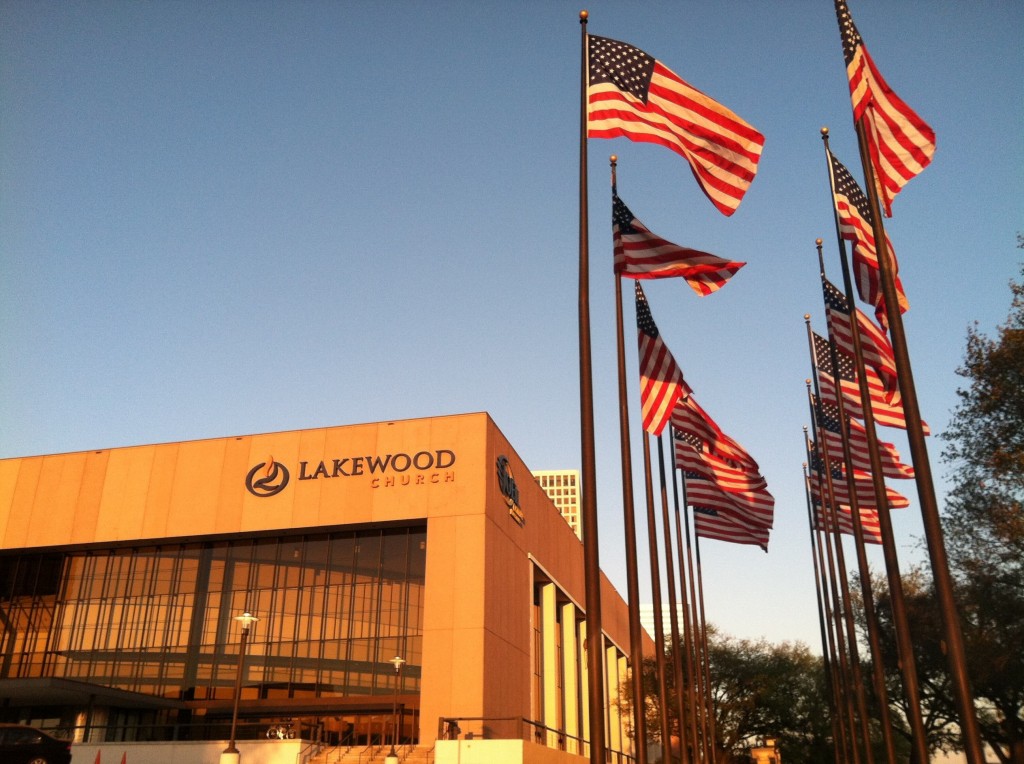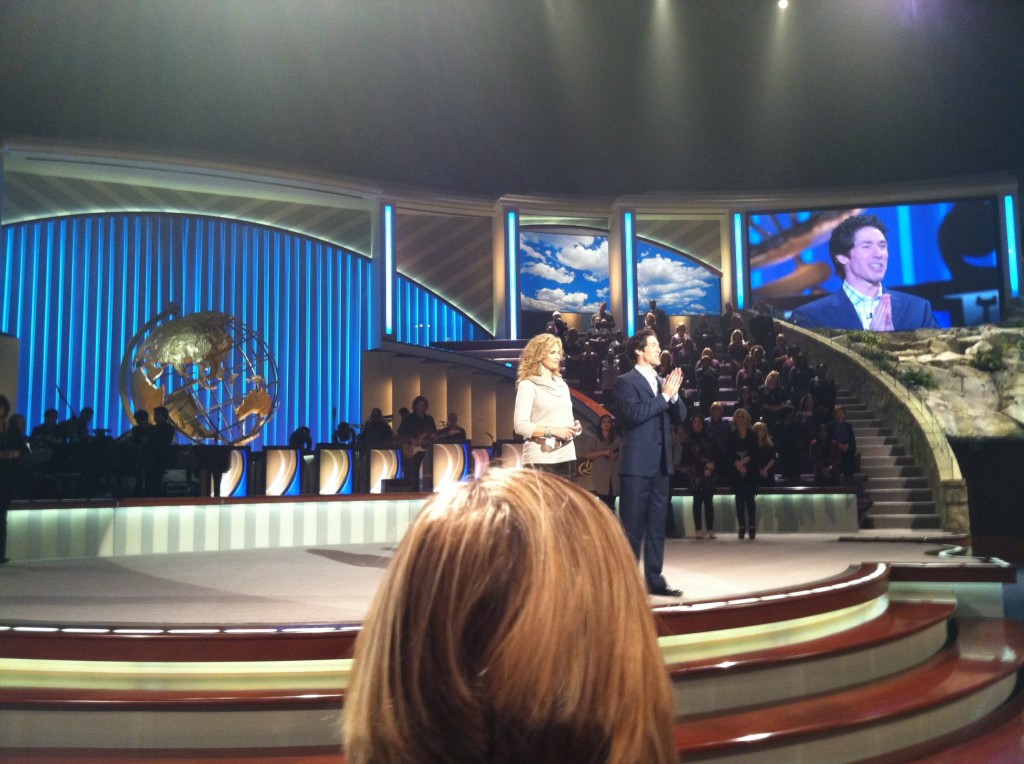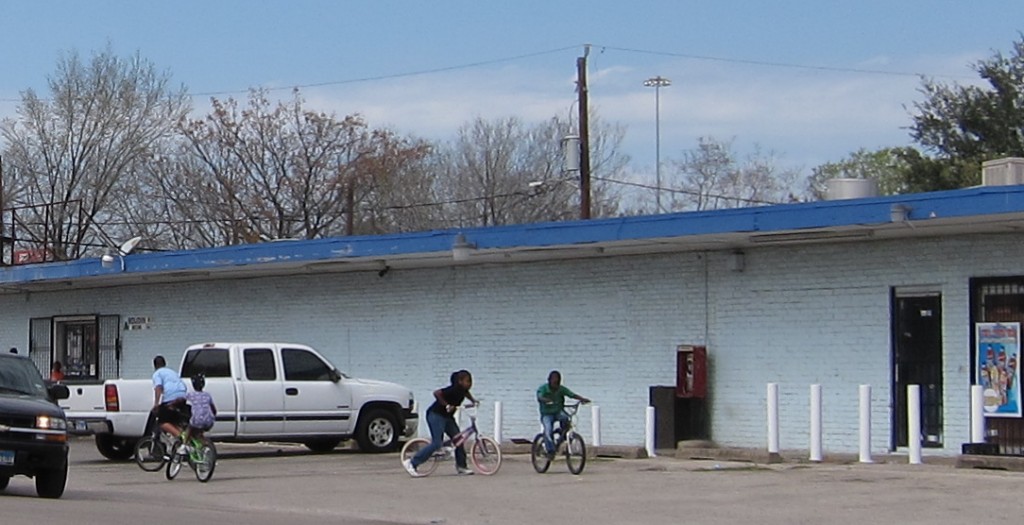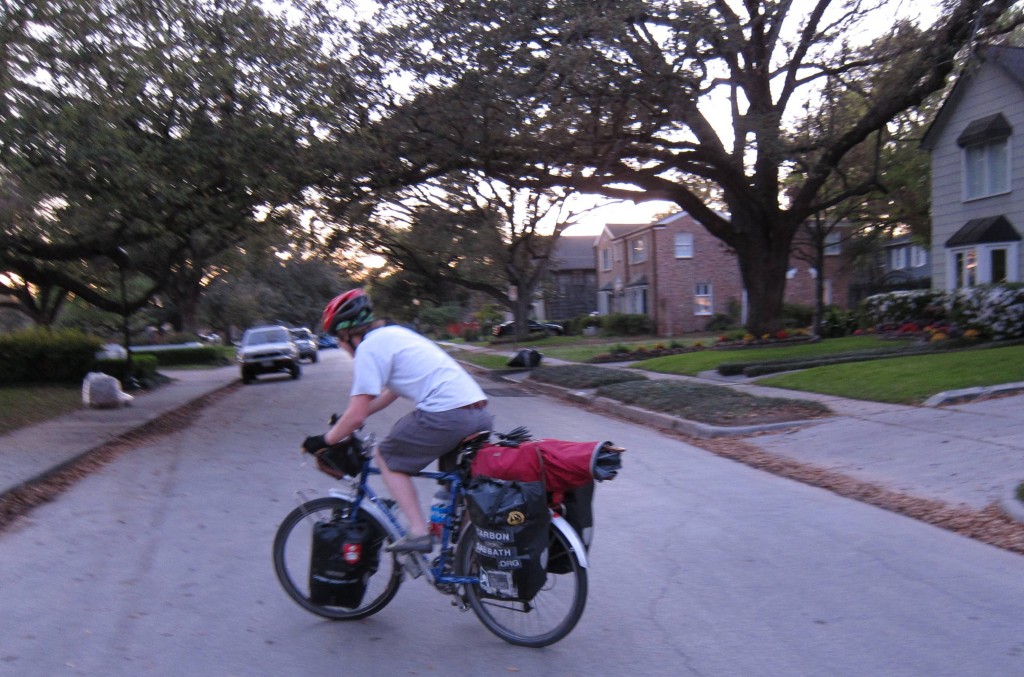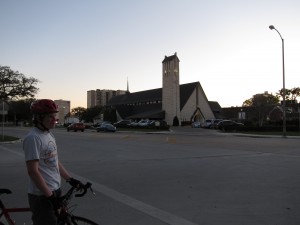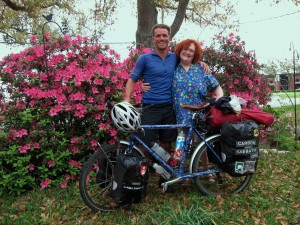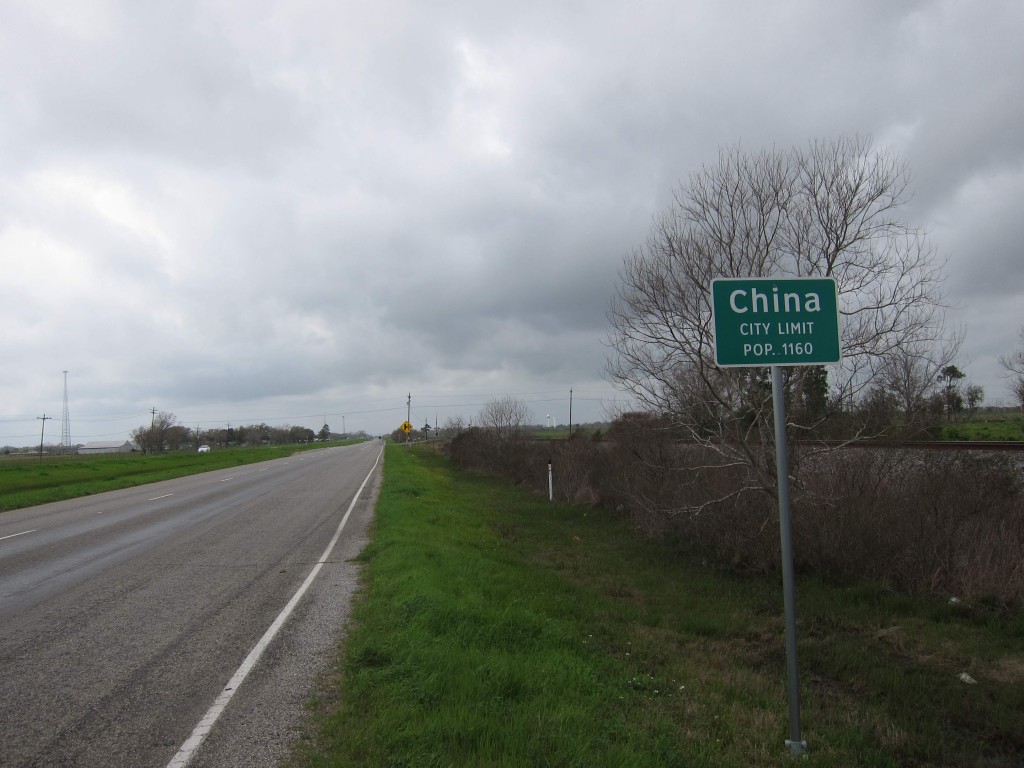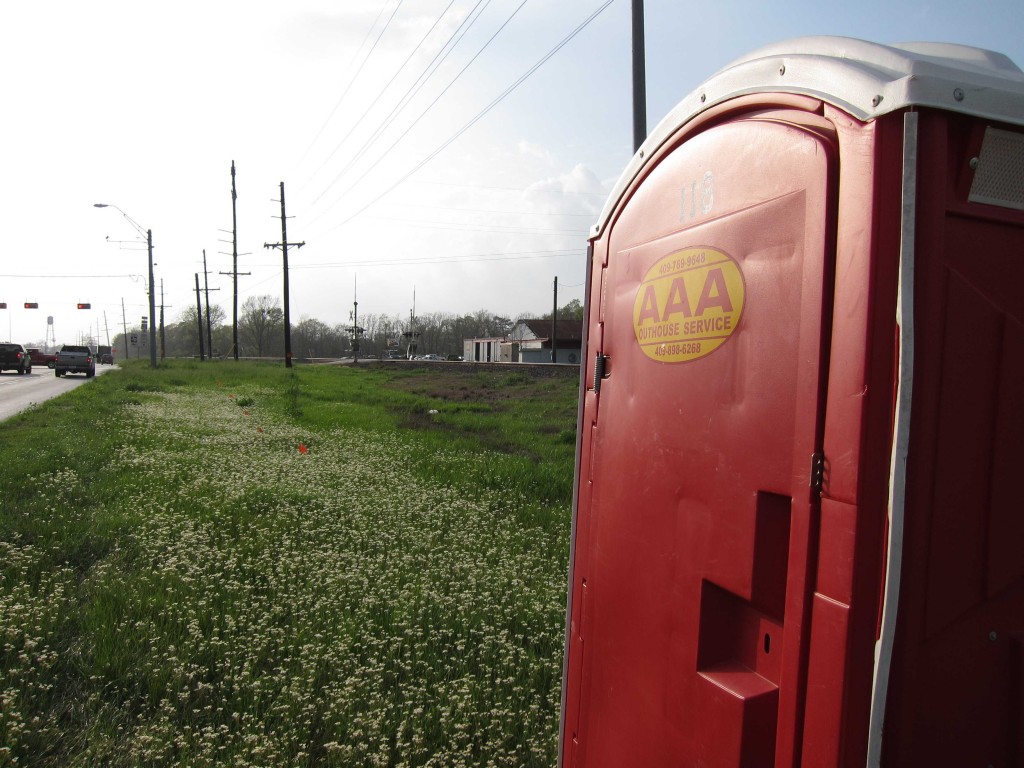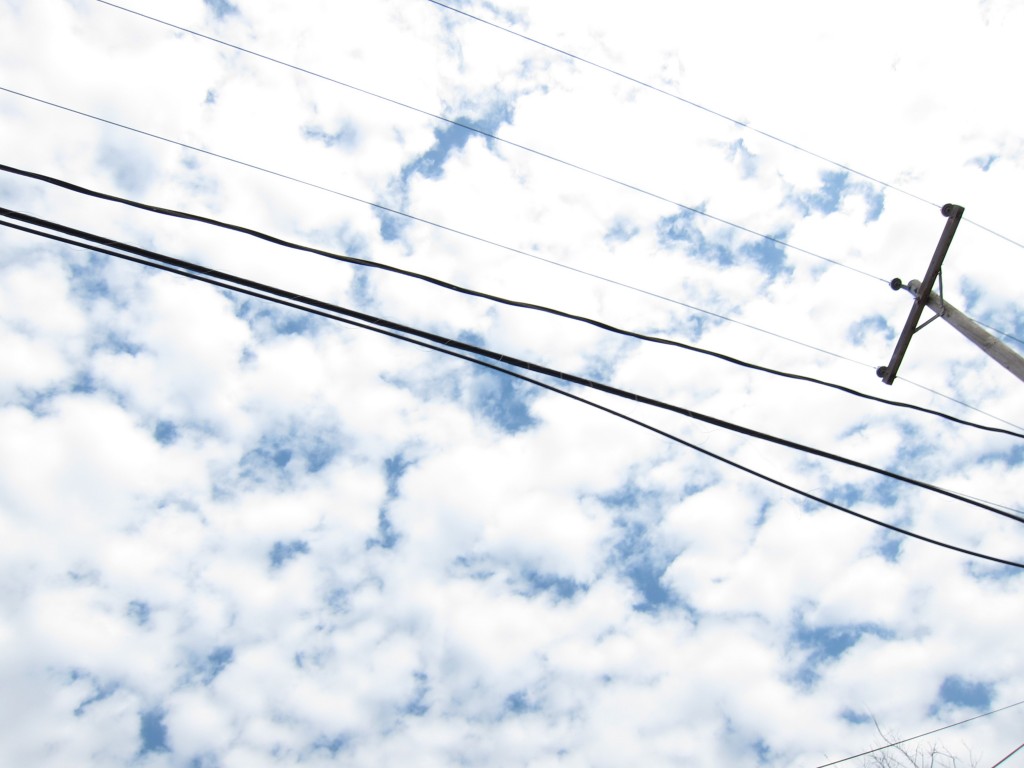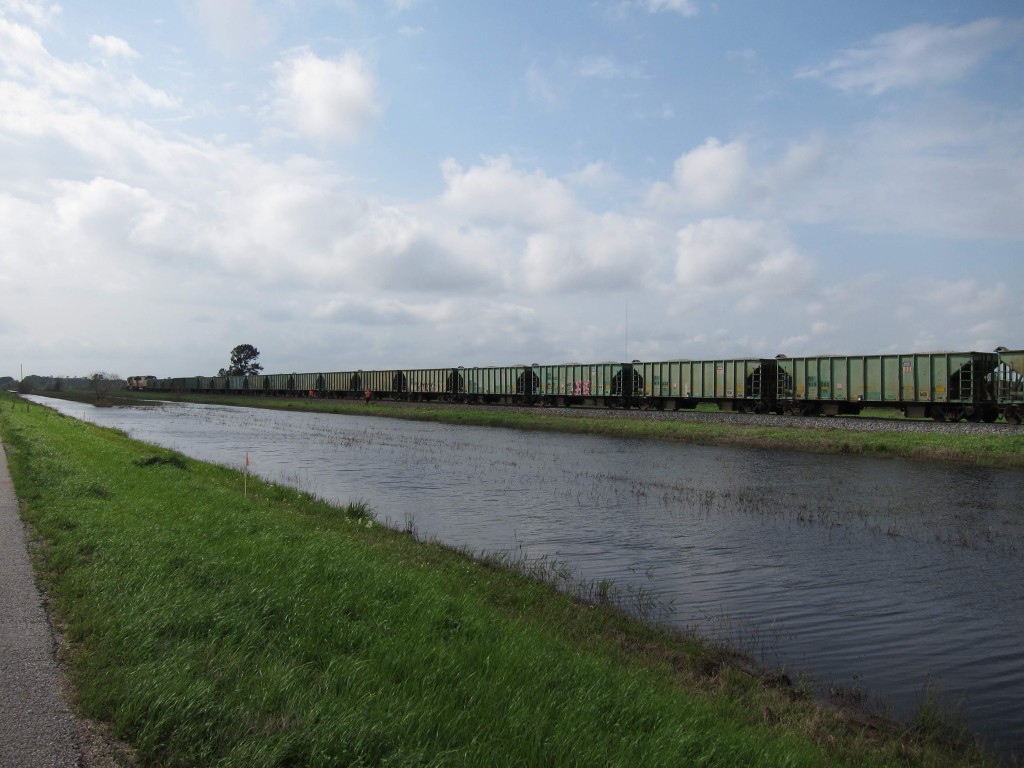11 Mar, 2012
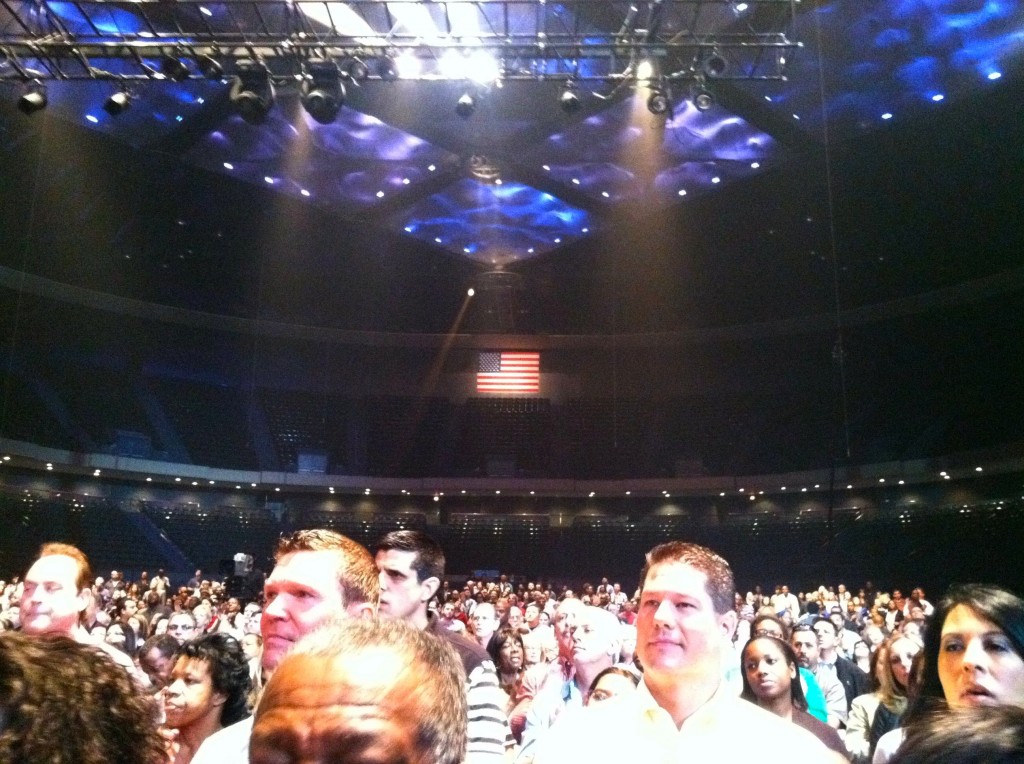 There is little subtle about Joel Osteen’s Lakewood church. The church convenes in the stadium that was once home to the Houston Rockets. It has the largest attendance of any church in the United States. The sanctuary has jumbotrons on either side of the stage. The church has a hotel and parking lots that could fit the entire populations of most towns I’ve visited on this trip.
There is little subtle about Joel Osteen’s Lakewood church. The church convenes in the stadium that was once home to the Houston Rockets. It has the largest attendance of any church in the United States. The sanctuary has jumbotrons on either side of the stage. The church has a hotel and parking lots that could fit the entire populations of most towns I’ve visited on this trip.
In the midst of this largess, it is easy to get lost. Even finding my way in to the sanctuary required the help of a friendly choir member. When I entered the inner chamber of the former stadium, the sea of chairs was overwhelming. I descended a height dwindling any natural hill in the Houston area and melted into the mass of attendees.
The size of a church like Lakewood makes visiting difficult. That’s not to say that people aren’t friendly. Quite the opposite. Everyone I spoke to was not only cordial but thoughtful and attentive. I was felt fortunate to join other out-of-towners in the front section of the church. But the facelessness of such a large congregation is disquieting. For several months prior to my arrival, I tried to contact various groups and leaders in the church to see if we could arrange a Carbon Sabbath discussion. Those attempts eventually drowned in the bureaucratic soup.
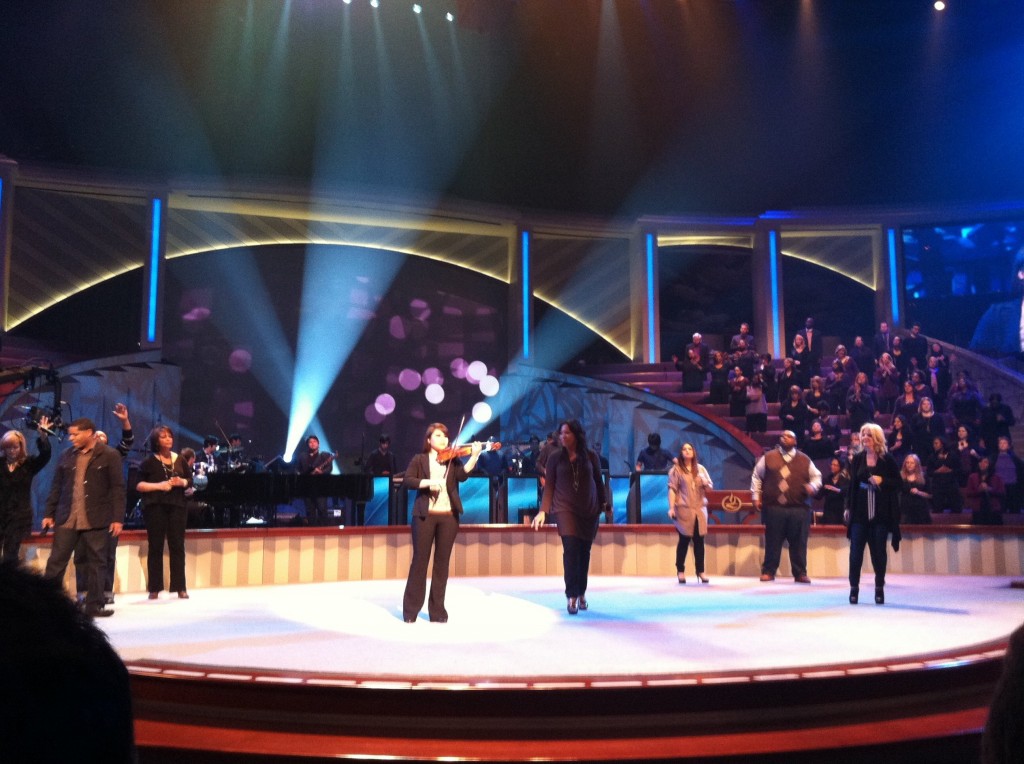
While there are many aspects of Lakewood that are not to my taste, I admire the diversity of the community. Although it might seem forced, the diversity apparent on the stage in the photo above seemed to be fairly indicative of the congregation. Many communities consider diversity a virtue, but very few churches succeed in maintaining a truly diverse congregation. Lakewood is one of the few, and I appreciate their efforts to reflect that diversity in their musical performance. I should also mention that the band was probably the tightest church band I've ever heard. The horn arrangements and performances reminded me of the Total Pros work with Wilco. The songs were not good, but the band and singers were unparalleled.
Because Lakewood and Joel Osteen play such prominent roles in contemporary American Christianity, I thought I’d still investigate the community’s response to climate change. In hopes of getting a more accurate reading by catching people at a down time, I spent a Saturday evening at the church. While Saturday evening is not the most happening time at many churches, Lakewood is in full effect that night with a service featuring their star preacher. At the same time, it’s not as crowded as Sunday morning. I was fortunate enough to speak to a variety of community leaders.
Environmental concern is decidedly absent from Lakewood. There is no “green team” as there are in many churches I’ve visited. There are no signs pointing to recycle bins, no compost units, no energy saving tips. The bulletin has no “printed on recycled paper” message or anything of the sort. The extensive bookstore does not have a single text on Christianity and ecology. With regard to climate change, there are no hints at an acknowledgement of this issue. If climate change is at all on the moral radar at Lakewood, it is well hidden behind the stage lights.
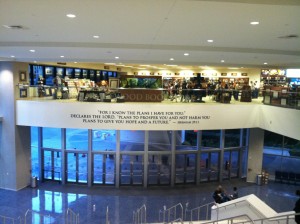
The Lakewood bookstore has no text texts that deal with climate change. At one point, they carried a binder that said, "Go Green, Go God!" That product sold out, and they never replaced it. The people with whom I spoke in the store were certainly interested in the Carbon Sabbath. They had never heard of anything related to Christianity and ecology or climate change. I suspect that will change in the years to come. Note the scripture passage below as associated with what many would call "prosperity gospel."
Despite this lack of activity, I should note the enthusiasm that people expressed when they heard about the Carbon Sabbath. Admittedly, that enthusiasm came after a quizzical glance and ineffable muttering. They had never thought of the connection between environmental concern and love of neighbor, but it made sense. No—there was nothing like that there amidst the 43,000+ attendees.
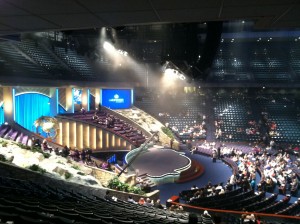
This is Lakewood from the stands. The globe at the center of the stage seems to be more of a marker of diversity rather than an awareness of the congregation's connection to the planet.
I am not naturally drawn to large venues. Years ago, I saw the Rolling Stones at my college’s stadium in Nashville. My nosebleed seats made the show seem like a diorama of the rock legends. A little Mick Jagger figurine danced in the distance to a sound vaguely resembling the songs I loved bouncing off a cavern of concrete and steel. I left before the show was over. I prefer to hear music in small clubs. I need the humanity of the people with whom I am celebrating life’s ups and downs.
Same goes for church. I want to know the people with whom I gather—as many of them as possible. When we don’t know the people in our communities, we lose our accountability; we lose our connection to one another. If we are not connected in our communities, it is harder to stay aware of our connection to the planet.
Lakewood is an excellent example of this phenomenon. As those of you who have followed the Carbon Sabbath over the last 9 months have seen, most small churches throughout the country have someone in their community who is interested in the environment or related issues. In some churches, this concern is purely financial. To keep the church running, the community has to be mindful of its energy use. Ironically, the church with the most energy consumption by far is also the church least outwardly concerned with energy use. Perhaps this observation gives us some understanding of US per capita carbon emissions relative to the rest of the world. In any case, I find it hard to love my neighbor if I am totally unaware of how my actions affect that neighbor. What is love without awareness? How have we let our neighbors become faceless? Outside of acknowledged relationships, who is my neighbor and who am I? These are the questions that connect us. They are the measure and expression of our call to love.
Until we meet again
More actively connected to the neighbors we know
Than we thought possible
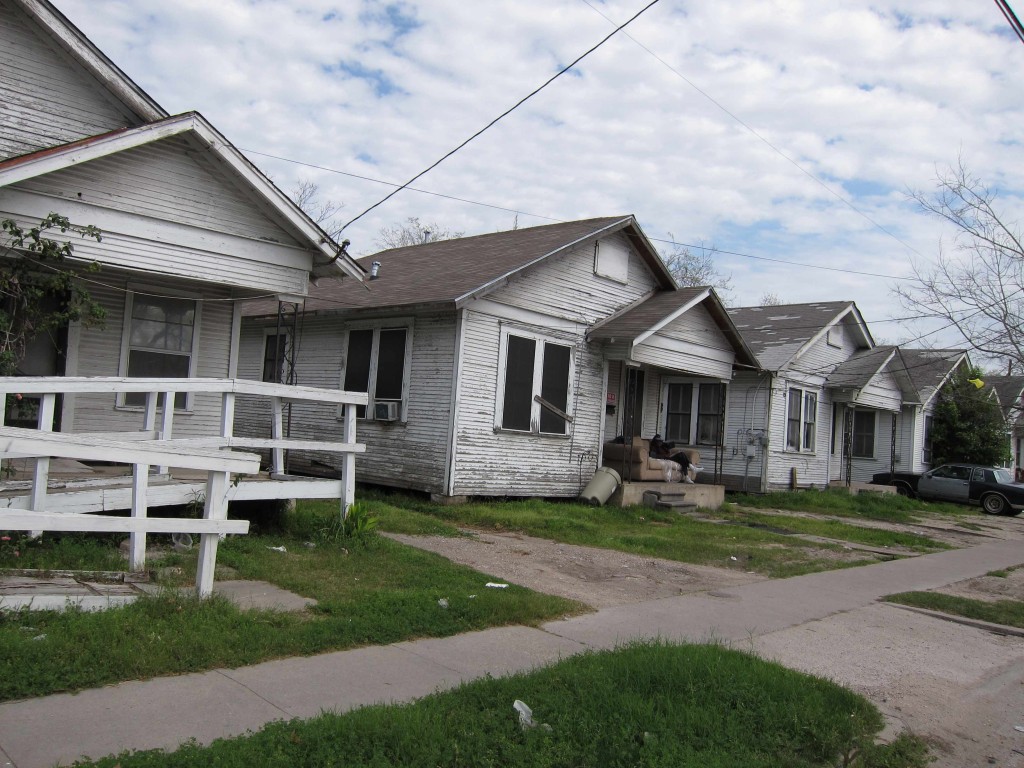
A lot of good folks and hearty waves go uncatalogued on this trip. Here's a hip shot from a neighborhood in Houston just after exchanging waves with the guy on the porch.
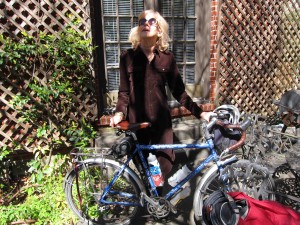
Thanks to Judith Frost for her company, hospitality, and conversation! Thanks also to her son Michael Winningham for making that happen!
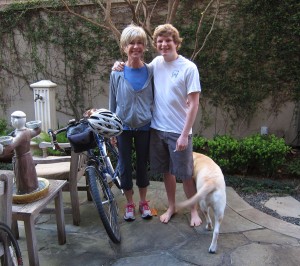
I caught up with YDS compadre Travis Helms who was home on break. Thanks to Travis and his parents for their incredible hospitality! Hope to see you all again soon!


